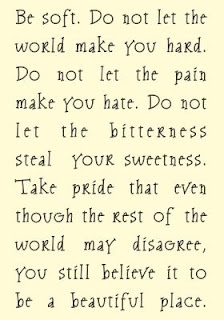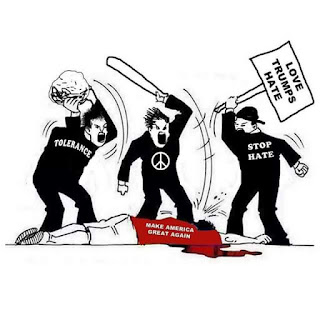Canadian firm wants to seize Citgo after Venezuela misses a settlement payment.— GlobalAwareness101 (@Mononoke__Hime) December 22, 2017
Everyone needs to stop listening to the lies that the Marxist worldwide are telling blaming the US for Venezuela's economic demise. China, Russia cut off cashflow last year.https://t.co/NJQJLHEenv
CNBC
written by Reuters staff
Thursday December 21, 2017
Mining company Crystallex International said on Thursday Venezuela failed to honor a settlement and urged a federal judge to allow it to seize control of U.S. refiner Citgo Petroleum, which is owned by the country's state oil company.
Canada-based Crystallex won a 2016 international arbitration award of $1.2 billion against Venezuela, which has refused to pay. The company had been trying to collect by seizing shares of Citgo's U.S. parent company, which is owned by Venezuelan state oil company PDVSA.
Last month Crystallex said it settled with cash-strapped Venezuela, but the company's lawyer said that deal fell through. "They said they'd make a payment to us and didn't," Robert Weigel, a lawyer for Crystallex, told the court Thursday.
Crystallex's lawyers told U.S. Judge Leonard Stark in Wilmington, Delaware, they had an "avalanche of evidence" that proved PDVSA and Venezuela were one and the same, including official PDVSA tweets with the hashtag #PDVSAesVenezuela, Spanish for "PDVSA is Venezuela."
As a result, they were seeking to attach, or seize, PDVSA's shares in PDV Holding Inc, Citgo's Delaware-incorporated parent.
If Crystallex succeeds, the case could open the way for more than a dozen companies to pursue Citgo to collect on arbitration claims over assets that were nationalized under Venezuela's late socialist leader Hugo Chavez.
PDVSA's lawyer argued on Thursday that Crystallex could not pursue the state oil company's assets because PDVSA was not a party to the arbitration.
Stark seemed concerned that Venezuela or PDVSA could try to sell the PDV Holding stock before he ruled. He also wondered if a ruling for Crystallex would put PDVSA on the hook for all Venezuelan debts and whether discovery was needed to determine Caracas' day-to-day control of the company.
Stark did not say when he might rule. Venezuela's President Nicolas Maduro said in November he wanted to restructure all foreign debt, which includes some $60 billion in outstanding sovereign and PDVSA bonds.
Legal experts said Houston-based Citgo might be pursued by creditors if the country broadly defaults on its debts, but seizing it could prove difficult. Venezuela agreed last month to pay Crystallex $25 million by Nov. 30, according to documents on the website of the Canadian monitor for Crystallex's Ontario insolvency proceeding.
Venezuela agreed to pay another $15 million by Dec. 31 and about $400 million by the end of 2020, according to the monitor's documents. Venezuela agreed to additional payments that were not disclosed.
The Miami Herald
written by Andres Oppenheimer
Friday December 15, 2017
I thought that Venezuela’s economic crisis was so acute — with a 12 percent economic contraction in 2017, a 700 percent inflation rate and widespread shortages of food and medicines — that it could hardly get worse. But new data show that it’s going to get a lot worse in 2018.
Venezuela has entered a new phase in its gradual economic decline since late President Hugo Chávez started his “Bolivarian revolution” in 1999. While the country had the world’s highest inflation rates in recent years, it had not technically reached the stage of hyperinflation, when prices go up by more than 50 percent a month.
But now Venezuela has crossed that threshold in recent weeks, according to leading economists with whom I talked recently. When countries reach hyperinflation, money becomes meaningless, because nobody knows what is the price of goods and services, and the economy is thrown into total chaos and paralysis.
Alejandro Werner, head of the Latin American department of the International Monetary Fund, told me that, “For the first time, the Venezuelan economy has entered into hyperinflationary territory in late 2017.” The IMF forecasts that there will be an accumulated inflation rate of nearly 2,400 percent in 2018, with a decline in the country’s gross domestic product of more than 10 percent.
“That means that, if these forecasts materialize, Venezuela’s economy by the end of 2018 will be less than half of what it was four or five years ago,” Werner said. “There will be an accumulated economic contraction of almost 50 percent.”
He added that, “Obviously, Venezuela’s worsening economic problems will cause even bigger declines in living conditions, bigger health problems, more epidemics and more migration to neighboring countries, as well as greater internal demands for change.”
Luis Alberto Moreno, president of the Inter-American Development Bank and one of the sharpest economic gurus in the region, told me that while some countries in the past have been able to overcome hyperinflation, “At the time there is no visible political will” in the country to embark on structural economic reforms to combat it. As a result, inflation is likely to “keep growing like a snowball,” he added.
It’s hard to know for how long Venezuela’s dictator Nicolas Maduro will be able to control a country under hyperinflation.
In some countries that fell into hyperinflation, such as Argentina in 1989, there were riots in the streets and a chaotic situation that led to President Raul Alfonsin’s resignation. But in other cases, such as Zimbabwe’s 2007 hyperinflation, the government kept printing money and adding zeroes to its currency for more than a year, until it decided to adopt the U.S. dollar as its currency in 2008.
That helped Zimbabwe’s dictator Robert Mugabe stay in power for another nine years, until he was forced to step down last month. But few expect Maduro — who claims to be an anti-American “revolutionary” — to adopt the U.S. currency. In recent days, Maduro announced the creation of a crypto-currency called the Petro, but it has elicited mostly laughter from most serious economists.
Most likely, hyperinflation will result in many more Venezuelans leaving the country, and perhaps triggering a regional migration crisis. More than 2 million Venezuelans have already moved to Colombia, Brazil, Panama and the United States since 1999, and millions more could follow suit.
Venezuelans are ESCAPING their own country in order to survive. Marxism Socialism isn't as great as the Leftist and Islam want people to believe. (emphasis mine)
Maduro may actually be encouraging a mass migration, much like happened in Cuba, so that he can be left with a mass of impoverished people who are dependent on his regime’s food subsidies. His brutal repression of recent opposition protests — which led to more than 150 dead this year — and his recent moves to close all avenues for a return to democracy may be aimed at convincing government opponents to leave.
If Latin American leaders don’t intensify their pressure on Maduro to allow free elections with independent electoral authorities and credible foreign observers, they will soon have a much bigger Venezuelan refugee problem on their doorsteps. Hyperinflation and growing repression are only going to make things worse in 2018.
China is cutting off cash to Venezuela [9/30/2016]— GlobalAwareness101 (@Mononoke__Hime) December 22, 2017
STOP BLAMING THE UNITED STATES CAPITALISTS for Venezuela's demise. The Marxist Socialist regime caused its own downfall. Even Communist China and Russia stopped their cash flow.https://t.co/0nGx8M5VVf
Venezuela faces epic default as China and Russia pull the plug [11/3/2017]— GlobalAwareness101 (@Mononoke__Hime) December 22, 2017
TOP BLAMING THE UNITED STATES CAPITALISTS for Venezuela's demise. The Marxist Socialist regime caused its own downfall. Even Communist China and Russia stopped their cash flow.https://t.co/1ISGQ66xWE
Venezuela wins Russia and China backing as it says it is honoring debt— GlobalAwareness101 (@Mononoke__Hime) December 22, 2017
Venezuela has borrowed billions of dollars from Russia and China over the years, primarily through oil-for-loan deals that have crimped the country’s hard currency revenue. [11/15/17]https://t.co/nsuPckWT9N
Record number of Venezuelans FLEEING to other parts of South America. [12/20/2017] #sosvenezuela #Marxismhttps://t.co/54kY6bHbiH— GlobalAwareness101 (@Mononoke__Hime) December 22, 2017
Ugh 😒 In the name of democracy, Venezuela bans the opposition. https://t.co/b1y0ooIdKd via @TheEconomist— GlobalAwareness101 (@Mononoke__Hime) December 21, 2017






































No comments:
Post a Comment